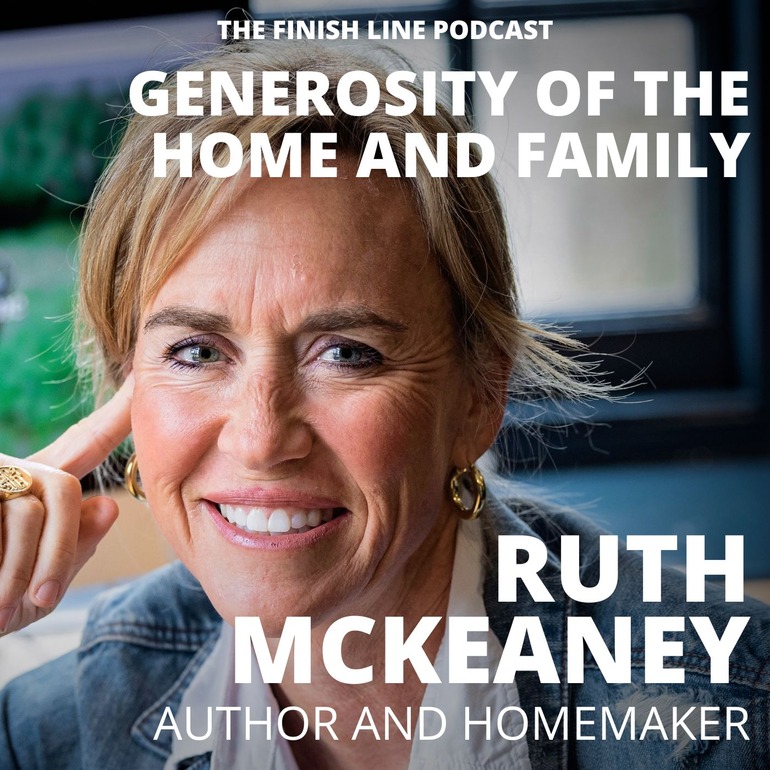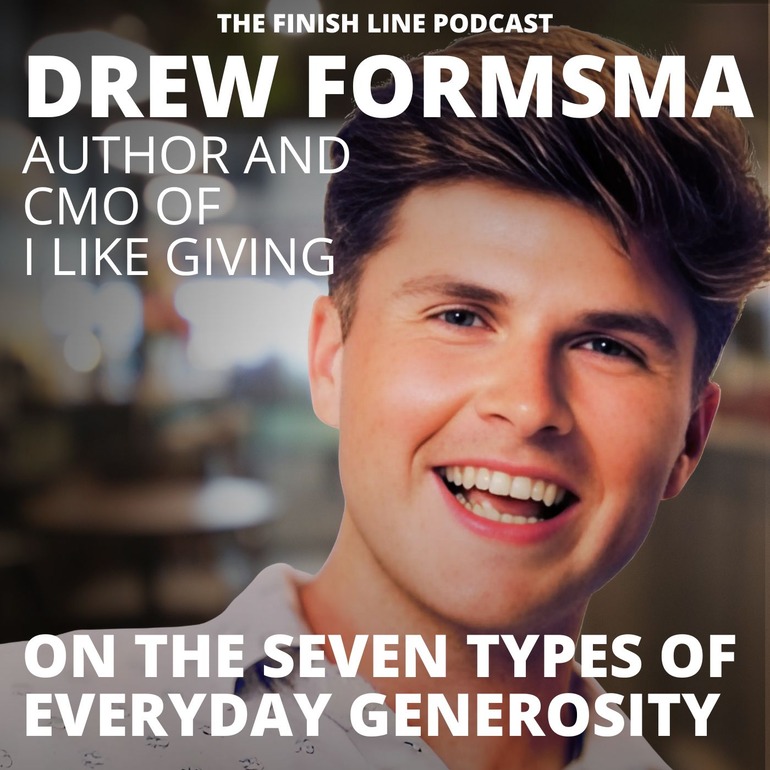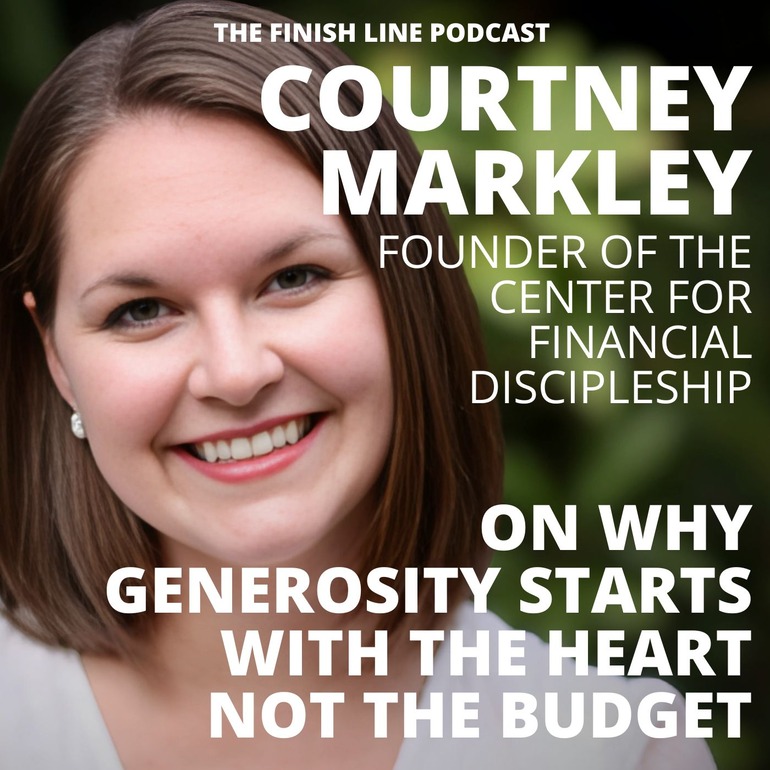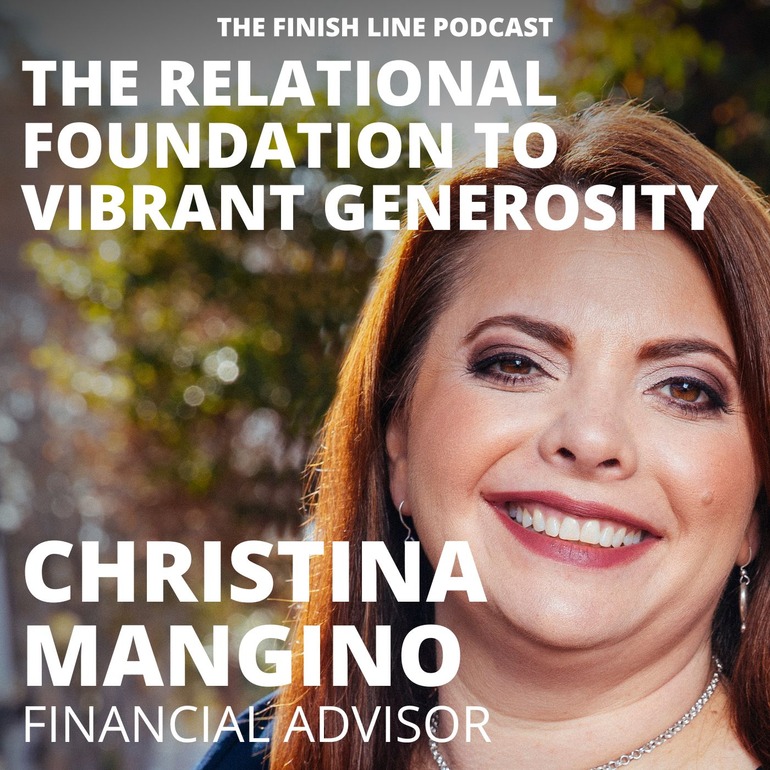Hi, my name is Kealan. My brother, Cody, and I founded the Finish Line Pledge together and cohost the Finish Line Podcast.
My story starts when I was a senior in college. I was a part of a campus ministry at the time and knew several people going into formal mission work after graduation. On one hand, I felt like a “real Christian” should go into the mission field or become a pastor. But on the other hand, I knew that I felt much more called to my career in medicine. It felt like a cop-out. I knew I would eventually have a nice salary and potential for a pretty comfortable lifestyle while some of my friends would be raising support and sacrificing their comfort and time to share the gospel. Maybe I was making a mistake? But I also knew that medicine was very attractive to me. I enjoyed the intellectual challenge and wanted to be working with people on a daily basis. Everything seemed to fit.
As the year progressed, I read the book Crazy Love by Francis Chan. Few books besides the Bible have been as impactful on my worldview. Chan wrote with an urgency and conviction that we are called to more than we settle for. The more I read, the more I wanted to be a part of the story he was talking about. God’s story.
Crazy Love was the beginning of my call to generosity. As a college student, I can’t say I was in a strong habit of giving. But I could feel God rapidly stretching me. I started small, giving to small causes here and there. Each time God stretched me to give more than I had ever given before, that became the new norm. And then He would stretch me again.
Laying a Foundation
After college, I got married to my wonderful wife, Alison. Throughout the preceding year, God had been working equally in her heart. We knew we wanted to be able to give generously as God had been leading us, but we didn’t really have the framework for it yet. We spent the first year of marriage in office jobs with a modest combined income. During that year, we began the process of creating a budget.
It took quite a bit of trial and error, but we felt a responsibility to keep our spending to just what we needed. Looking back at our records, the two of us were spending around $2,400 per month at the time on regular personal expenses, around the 30th percentile of Americans. But we were happy! We felt content. Of course there were things that we wanted, but we worked together to sort through them to figure out what was most important to us.
During that first year, I read another book called Revolution in World Missions by KP Yohannan. KP talked about the work of native missionaries in Asia, sharing the gospel with their neighbors, who lived on a small fraction of the typical American budget. He also described in detail the shock he experienced when he first came to the US and experienced the extraordinary amount we spend on ourselves and our comfort. It was like nothing he had ever experienced in India. I was deeply convicted by his story. Soon after finishing the book, Alison and I began supporting native missionaries in Asia. As we began to support their work, we began to develop a deeper and deeper sense of purpose. Even though we were not on the mission field ourselves, we finally felt like we had some skin in the game – like we had finally entered the Greater Story. By the end of that first year, we had managed to give around $10,000 of our modest income to native missionaries.
A Bold Request
Year two marked the beginning of med school for me. And as I looked towards leaving my office job and income, we had some important decisions to make. We ultimately decided that it didn’t make sense to take out med school loans to be able to sustain our current level of giving (more about debt here). So we scaled back to our essential commitments and our tithe. We also began praying fervently for God to help us keep our loans to the bare minimum so we could resume our giving immediately after med school. With tuition at over $50,000 per year, we knew that major loans would significantly hold us back from giving again in the future.
Going into that first semester, we had saved enough to cover a little more than the first semester. We figured we would have to take out loans at some point, but we started praying some crazy prayers. Even though we couldn’t see any path to make it possible, we started praying frequently that God would get us through the next 4 years without any debt so that we could get back to the giving we had started before med school.
God Answers Prayers
During that first semester, we ruthlessly cut back our spending to the absolute bare minimum. Unlike most of my fellow students, I didn’t live in Center City Philadelphia where my school was. Instead, we lived a mile away where rent was significantly cheaper, and I biked (or walked) to class. We rarely ate out and we held off on any major travel, opting for simple visits to family instead. We had lots of discussions about expenses as they came up, to try to figure out which of them were most important.
While we were working to keep spending to a minimum, we noticed also that little windfalls of money started coming in from time to time. For example, our beloved 12 year old Toyota Camry was hit pretty hard by a U-Haul one day while parked, completely destroying the front wheel. When the U-Haul insurance inspector reviewed the case, they called our car totalled and wrote us a check for the value of the car (around $3000 at the time). However, aside from some noticeable cosmetic damage, the only real functional damage was the wheel itself, which we replaced for $150 ourselves. The remaining $2850 went right to the med school fund. And we still have that car today (with the same scratches)!
More importantly, God opened several doors for Alison that had a major impact. First, the job she held before med school kept her on as a remote employee so she could keep her full salary as we made our transition to Philadelphia. On top of that, He blessed a number of her efforts to begin pursuing her dream of becoming a photographer. Even during that first semester, she was able to start bringing in a significant income on top of her day job.
Before we knew it, we had enough to cover that second semester. And then the third. And the fourth. We never knew how far we would get, and we simply kept praying that God would pave the way. At some point, I stopped being able to reason through how we were doing it, there was just no other explanation except for God. And as we neared the end of my fourth year, just weeks before our final payment, God provided the last funds we needed. Over $220,000 in 4 years. And all while I didn’t have a job! Does God always answer prayers like that? No. He often has specific reasons why it would be more loving not to answer our prayers. But He answered that one, and it is still hard to wrap my head around.
The Life of a Doctor
Over those 4 years, God deeply emboldened our faith as we watched Him work. We were humbled by His answers to our prayers. And we felt even more strongly about getting back to our giving. During those years, another important change took place in our hearts. God showed us how to be content with only a little. We were living on around $30,000 per year in expenses (in a big city) and everything else that came in was going towards med school. And we were happy. Not only that, but we still managed to get a dog and have a baby during those 4 years as well.
However, as we neared the end of med school, we started to look at the big picture of medical training. Doctors have a unique financial path through life. While most people start their career after school or college and slowly move up through the ranks, doctors don’t really get started for a long time. For most physicians, first comes the 4 years of undergrad, and any associated student loans. Then comes the 4 years of med school, and the even greater student loans. After med school comes residency training for another 3-6 years with a modest salary of $50,000-$60,000. During that time, you have to start paying back all those loans. And I’ve known residents to have loans upwards of $400,000. Needless to say, med students and residents learn to live on very little.
Finally, after residency, doctors can start practicing medicine on their own. And along with that first job comes a salary ranging from $150,000 to $350,000 or more depending on the specialty. So after 11-14 years of training and living on very little, doctors are suddenly inundated with a salary that launches them easily into the 90th percentile of income earners. What a weird life.
As we neared the end of med school, we wanted to avoid the rollercoaster of lifestyle inflation that comes with all of those phases of medical training. We knew we were happy already, and didn’t want to rapidly expand our lifestyle as our income increased. Thus began our search for some sort of a guardrail – what we later came to call our “financial finish line”.
The Hunt for a Benchmark
As we entered residency training with no student loans, we began to more deeply consider the question “How much do we really need?” We were excited to be able to give again and wanted to maximize the funds we had available to use as God directed us. To prevent the slow (or rapid) creep of lifestyle inflation, we wanted to find some sort of benchmark that we could compare our spending to. We went through a number of iterations, but they all centered around the idea of the median – trying to be somewhere right in the middle of what everyone else was doing.
At first, we used a couple other websites and calculators people had made for tracking income data. But nothing quite seemed to account for the right factors. That’s how we ended up creating the system we use now at the Finish Line Pledge.
Life with a Finish Line
As we continued through residency, we put it into practice. We chose the 50th percentile as our financial finish line, which was already lower than our combined income. And we began to give away the rest! We were able to restart the things we were already passionate about – foreign missions, child sponsorship, and campus ministry. But with the excess that God continued to grow, we started to expand to other things as God laid them on our hearts.
One of those is our city, Philadelphia. After 7 years in Philly, we have come to really love and care about it’s people. And we are fortunate to be a part of a church that does too. God has opened up many opportunities to help address some of the deep rooted problems our city faces. And rather than just identify those problems, we now have the capacity to contribute to real solutions.
However, an even more exciting change has been our ability to address the situations that God drops right in our lap. What we’ve found is that with a pool of money set aside to use for God’s work, we have become much more attuned to little ways that we can enter into other’s lives when there is pain or hardship. One example of this is what Alison called her “Grubhub ministry”. She loves to send Grubhub gift cards to people who are going through a hard time, just had a baby, or could otherwise use a little boost. And she seems to find an endless list of situations that apply! We don’t even discuss it anymore – when she feels led, she just does it! The money is already set aside for things like that.
All of these changes have given us a deep sense of purpose in our relationships, our city, and in fulfilling the Great Commission to bring Christ to all peoples, nations, and tongues. And most importantly, it doesn’t rely on us constantly deciding to actively take money out of our budget to give. We spend the same amount on ourselves each month, and everything else gets given away at some point. If we don’t give anything for a couple months, we just end up with a larger pool to give from. It’s all built into the system.
Big Potential
I currently have 1 year left in residency. When I finally go into practice after that, what do we expect to change? Hopefully I get a little more sleep at night. But other than that, not much! We already have our spending capped and we are plenty happy with what we have. And we don’t anticipate changing a thing about our lifestyle. However, we will certainly have more to give. And we are excited! We have already seen God do so much, and we can’t imagine what He might be able to accomplish with even more. And humbly, we get to be a part of it, to see it first hand.
So What About You?
We have been deeply moved by the ways God has sustained us, the ways He has reoriented our hearts, and the story that He has invited us into. And we would love for you to experience those same things. You can get an idea for how a financial finish line works, read about our core beliefs on wealth, or see how a financial finish line would affect your own finances with our comprehensive finish line calculator. Even better, get a couple people together and work through our (completely free) SPRINT program. A SPRINT is an extensive 8 week curriculum for small groups that walks through a biblical foundation of wealth and develops some detailed strategies for maximizing how we utilize the wealth that God allows us to manage.
Want to hear stories of others living with a finish line or pursuing radical generosity? Check out the Finish Line Podcast where we interview pastors, financial advisors, radically generous givers, entrepreneurs, CEOs, and nonprofit leaders to explore one central question: How do we steward God’s money well?
On The Finish Line Podcast, you’ll hear challenging and inspirational stories of tremendous generosity. You’ll also learn from experts in multiple fields about topics like setting a financial finish line, giving efficiently and effectively, and teaching generosity to your children. More than anything, though, you’ll see how God is constantly at work redeeming the world He created and loves.
You can find the Finish Line Podcast on Spotify, Apple Podcasts, Google Podcasts, or wherever you get your podcasts.
Best of luck on your own race, and God bless,
Kealan








0 Comments